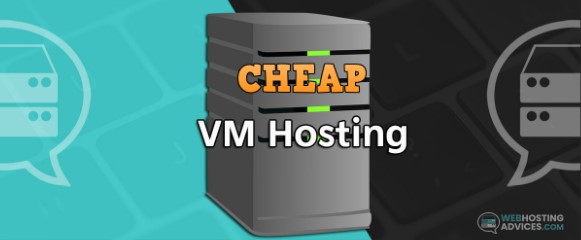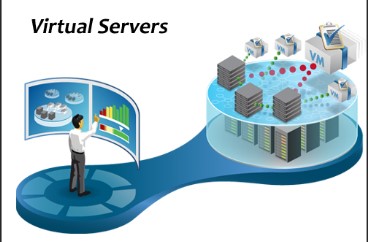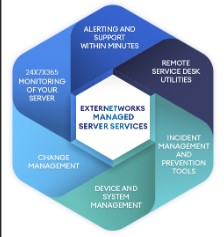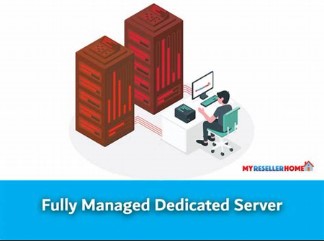Buy Dedicated Server
In the bustling world of online businesses, the need for a dedicated server is akin to having a reliable ally in the digital arena.
It’s not just about hosting; it’s about wielding a powerful tool that amplifies scalability, boosts performance, and fortifies security measures. Investing in a dedicated server isn’t merely an option; it’s a strategic move towards gaining an edge in the competitivtowardcape of cyberspace.
Understanding Dedicated Servers
What is a dedicated server?
In the intricate web of web hosting, a dedicated server emerges as a stalwart fortress, offering an exclusive haven for digital endeavors. Unlike shared hosting, where multiple websites coexist on a single server, a dedicated server is solely dedicated to the needs of a single client or entity.
It’s akin to owning a private estate in the digital landscape, affording unparalleled control, customization, and performance.
In essence, a dedicated server serves as the bedrock of online operations, providing a robust platform for hosting websites, applications, and databases with unwavering reliability and efficiency.
It stands as a bastion of computational power and reliability, capable of handling high volumes of traffic and resource-intensive tasks with ease and grace.
Distinction between dedicated and shared hosting
The distinction between dedicated and shared hosting lies at the heart of the hosting ecosystem, shaping the hosting experience in profound ways. In shared hosting environments, multiple websites share the same server resources, including CPU, RAM, and storage.
While this approach offers affordability and simplicity, it also comes with inherent limitations in terms of performance, scalability, and security.
On the other hand, dedicated hosting eschews the shared environment in favor of exclusivity and autonomy. With a dedicated server, clients enjoy unfettered access to the full spectrum of server resources, allowing for unparalleled performance, scalability, and customization.
It’s a paradigm shift from the constraints of shared hosting, offering a tailored hosting solution that caters to the unique needs and requirements of businesses and enterprises.
How dedicated servers work
Hardware specifications and resources
At the core of every dedicated server lies a formidable array of hardware specifications and resources, meticulously configured to meet the diverse demands of modern digital enterprises.
From high-performance processors and expansive RAM modules to capacious storage solutions, dedicated servers embody the pinnacle of computational prowess and reliability.
The hardware specifications of a dedicated server play a pivotal role in determining its capabilities and performance characteristics. Clients have the freedom to choose from a wide range of processor types and speeds, tailoring their server configurations to suit their specific computational requirements.
Similarly, RAM and storage options abound, offering flexibility and scalability to accommodate evolving business needs and workloads.
Server management options: managed vs. unmanaged
In the realm of dedicated hosting, clients are presented with a choice between managed and unmanaged server management options, each offering distinct advantages and considerations.
Managed dedicated servers provide a hands-off approach to server management, with the hosting provider assuming responsibility for routine administrative tasks and maintenance activities.
This includes tasks such as server monitoring, software updates, security patches, and technical support, allowing clients to focus on their core business activities without the burden of server management.
Unmanaged dedicated servers, on the other hand, offer a greater degree of autonomy and control to clients, who are responsible for overseeing all aspects of server management and maintenance.
While this approach provides maximum flexibility and customization, it also requires a higher level of technical expertise and proficiency to ensure optimal server performance and security.
In summary, dedicated servers serve as the backbone of online operations, providing a reliable and robust platform for hosting websites, applications, and databases.
With their exclusive access to server resources and autonomy in server management, dedicated servers empower businesses and enterprises to unlock new levels of performance, scalability, and control in the dynamic landscape of web hosting.
What is a dedicated server?
A dedicated server stands as a bastion of reliability and performance in the realm of web hosting. Unlike its shared counterparts, a dedicated server is exclusively allocated to a single client, providing unrivaled control, customization, and computational power.
It serves as the cornerstone of digital infrastructure, offering a robust platform for hosting websites, applications, and databases with unparalleled efficiency and reliability.
How dedicated servers work
At the heart of every dedicated server lies a formidable arsenal of hardware specifications and resources, meticulously configured to meet the diverse needs of businesses and enterprises.
From blazing-fast processors and expansive RAM modules to capacious storage solutions, dedicated servers embody the epitome of computational prowess and reliability. Moreover, clients have the option to choose between managed and unmanaged server management options, providing flexibility and autonomy in server administration and maintenance.
Factors to Consider Before Buying
Assessing your hosting needs
Before diving headlong into the realm of dedicated servers, it’s imperative to assess your hosting needs with a discerning eye. Consider factors such as anticipated traffic volume, website requirements, and the nature of resource-intensive applications or databases that you intend to deploy.
By gaining a clear understanding of your hosting needs, you can make informed decisions that align with your business objectives and aspirations.
Budget considerations
While the allure of dedicated servers may be undeniable, it’s essential to weigh the upfront costs against the long-term savings and benefits that they offer.
Evaluate the cost-effectiveness of dedicated hosting compared to other hosting options, taking into account factors such as scalability, performance, and security. By adopting a holistic approach to budget considerations, you can make prudent investments that yield substantial returns in the long run.
Choosing the Right Dedicated Server Provider
Researching dedicated server providers
In the vast landscape of dedicated server providers, distinguishing the wheat from the chaff requires careful research and due diligence. Explore leading providers in the industry, renowned for their reliability, performance, and customer satisfaction ratings.
Additionally, consider specialty providers offering niche services or features tailored to specific industries or business requirements, providing a customized hosting experience that meets your unique needs.
Factors to consider when selecting a provider
When evaluating dedicated server providers, look beyond the surface and delve into the finer details that shape the hosting experience. Scrutinize reliability and uptime guarantees to ensure uninterrupted access to your digital assets and resources.
Assess the quality and responsiveness of customer support services, gauging their ability to address technical issues and queries in a timely and effective manner. Moreover, explore additional features such as DDoS protection and backup options, safeguarding your data and digital infrastructure against unforeseen threats and contingencies.
Selecting Hardware and Configuration
Hardware specifications and customization options
One of the defining features of dedicated servers is the unparalleled degree of hardware customization and configuration options available to clients.
Choose the processor type and speed that best aligns with your computational requirements, whether it’s a high-performance Intel Xeon or AMD Ryzen processor. Similarly, explore RAM and storage options, weighing the benefits of traditional HDDs against the lightning-fast performance of SSDs.
Operating system choices
When it comes to operating systems, dedicated server clients have the freedom to choose between popular distributions such as Windows and Linux. Consider the specific requirements of your applications and workflows, opting for an operating system that offers the optimal balance of stability, performance, and compatibility.
Additionally, explore control panel options for server management, empowering you to streamline administrative tasks and operations with ease and efficiency.
Setting Up and Configuring Your Dedicated Server
Step-by-step guide to setting up a dedicated server
Navigating the process of setting up a dedicated server may seem daunting at first glance, but with the right guidance, it becomes a straightforward and streamlined endeavor.
Begin by initiating the ordering and provisioning process with your chosen provider, selecting the hardware specifications and configuration options that best suit your needs. Once provisioned, proceed with the initial server setup and configuration, ensuring that all settings and parameters are optimized for peak performance and reliability.
Installing necessary software and applications
With your dedicated server up and running, it’s time to install the necessary software and applications that power your digital infrastructure. Deploy web server software such as Apache or Nginx to facilitate website hosting and management, providing a robust platform for serving web content to visitors and users.
Additionally, install database management systems such as MySQL or PostgreSQL to support data storage, retrieval, and manipulation operations with efficiency and reliability.
Optimizing Performance and Security
Performance optimization techniques
Achieving optimal performance with your dedicated server requires a strategic approach that encompasses a myriad of techniques and strategies. Explore load balancing and caching strategies to distribute incoming traffic evenly across server resources, maximizing throughput and minimizing latency.
Fine-tune server settings and parameters to align with the specific requirements of your applications and workloads, optimizing performance for peak efficiency and responsiveness.
Implementing security measures
In the ever-evolving landscape of cybersecurity threats, protecting your dedicated server against potential vulnerabilities and attacks is paramount. Implement firewall configurations and intrusion detection systems to monitor and mitigate unauthorized access attempts and malicious activities.
Stay vigilant with regular software updates and patches, ensuring that your server remains fortified against emerging threats and vulnerabilities in the digital domain.
Conclusion
As we draw the curtains on our exploration of dedicated servers, it’s evident that they stand as pillars of strength and reliability in the digital realm. From scalability and performance to security and control, the benefits of investing in a dedicated server are manifold and far-reaching.
By taking action and embracing dedicated hosting solutions tailored to your business needs, you empower yourself to unlock new levels of efficiency, productivity, and success in the dynamic landscape of online business and enterprise. So, seize the opportunity, buy your dedicated server today, and embark on a journey of digital transformation





